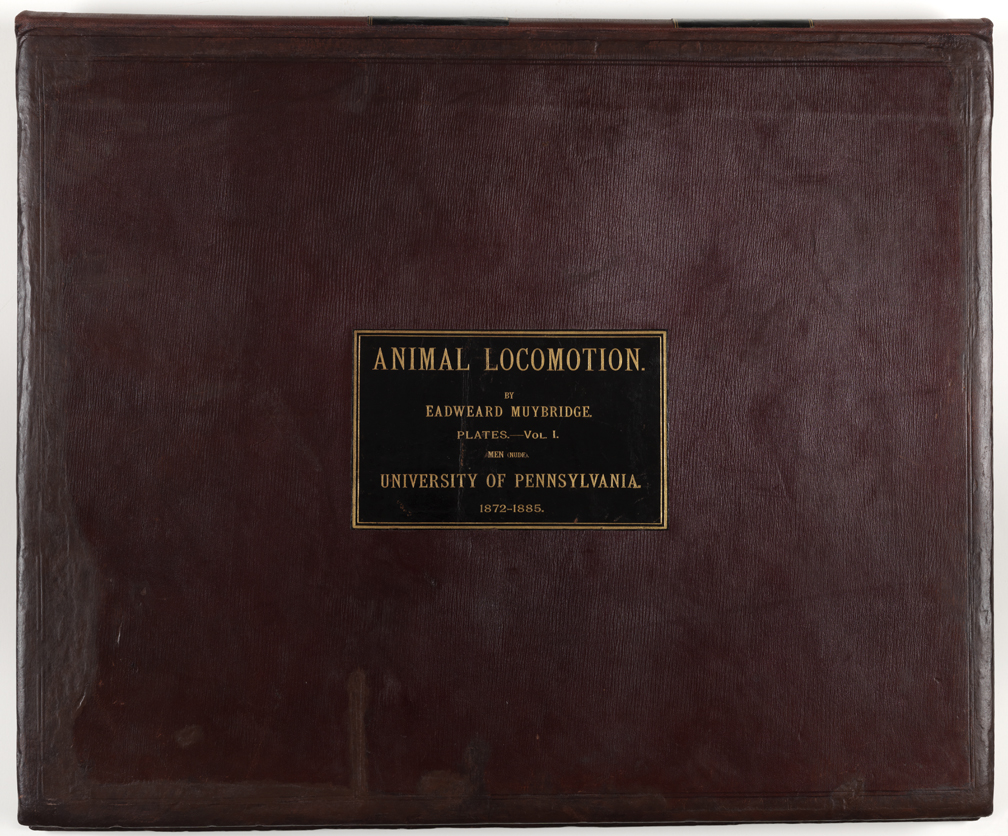Contributed by Hoang Tran, Director of Archives, and Barbara Katus, Manager of Imaging Services
Eadweard Muybridge (1830-1904) was an English photographer who is considered the father of motion picture because of his photographic studies of animal motion. His pivotal work in the development and evolution of motion picture began in 1872. Muybridge was hired by Leland Stanford, the California governor and founder of Stanford University, to settle a debate regarding whether a horse had all its hooves off the ground simultaneously or not. For six years, Muybridge used photography to figure out the answer to the question. All his work led to success in 1878 when he setup 12 cameras along a racetrack to photograph a galloping horse. The photographs proved that there is a point when no hooves touch the ground during the horse’s stride.
Muybridge’s connection to PAFA began when PAFA’s board member Fairman Rogers and art faculty member Thomas Eakins corresponded with Muybridge about his Stanford photograph project. In 1883, Rogers invited Muybridge to give a lecture at the Academy. On February 12, 1883, Muybridge lectured on The Romance and Realities of Animal Locomotion, illustrated by the Zoopraxiscope at PAFA. Muybridge eventually relocated to Philadelphia and continued his work on his landmark study on animal locomotion.
Under the auspices of the University of Pennsylvania, Muybridge eventually published 12 volumes that illustrated animal locomotion in 781 plates. Fairman Rogers who was an alumnus of the University of Pennsylvania and co-founder of the School of Veterinary Medicine, professor of civil engineering acquired a set of Muybridge’s 12 volumes. In 1887, Rogers donated the volumes to PAFA’s library.

128 years after Rogers’ donation, the volumes required much needed conservation to be usable again. PAFA was fortunate enough to receive grant funding from the Institute of Museum and Library Services (IMLS) to support the conservation of all 12 volumes. After conservation, the volumes were all digitized in-house. The volumes are now freely accessible online.
To view all 12 volumes, please visit PAFA’s Digital Archives here.